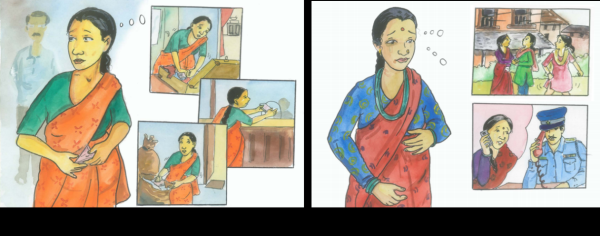In pregnancy, the experience of domestic violence can have serious adverse maternal and neonatal health effects, and epigenetic studies indicate long-lasting consequences on children as they grow into adulthood. Antenatal care is a window of opportunity to reduce these harmful health consequences as most women use these health services in their lifetimes.
pregnancy
-
Reproductive Health and ChildbirthResearch
Could Trophoblasts be the Immune Cells of Pregnancy?
by @NTNUhealth 18 December 2014Blogger: Guro Stødle and Line Tangerås PhD students, CEMIR In the human body, infections (caused by bacteria or virus) and tissue injury may…
-
Reproductive Health and ChildbirthResearch
Six weeks of data collection in Sri Lanka’s hill country tea plantations
by @NTNUhealth 12 December 2014Bloggers: Jennifer J. Infanti (Department of Public Health and General Practice, NTNU), Ragnhild Lund (Department of Geography, NTNU) and Kumudu Wijewardene (Department of Community…
-
OpinionsReproductive Health and ChildbirthResearch
Improving antenatal care for pregnant women experiencing domestic violence
by Hanne Strypet 16 January 2014Blogger: Jennifer J. Infanti The Faculty of Medicine at NTNU is delighted to welcome four doctors/researchers from Nepal to Trondheim between…
-
OpinionsReproductive Health and ChildbirthResearch
Global health in Trondheim
by @NTNUhealth 14 November 2013Blogger: Elisabeth Darj On the first of September I started my work as the first professor in Global Health at NTNU…
-
Reproductive Health and ChildbirthResearch
Can ultrasound predict prolonged labour?
by @NTNUhealth 19 September 2013Blogger: Erik Andreas Torkildsen Most women give birth naturally and without problems, but sometimes labour becomes prolonged. Common causes are…
-
Reproductive Health and ChildbirthResearch
The first meeting – pregnancy ultrasound
by Kari Williamson 2 July 2013Blogger: Kari Williamson You lie there with gel on your stomach and glance towards the ultrasound screen. There he is, the…

